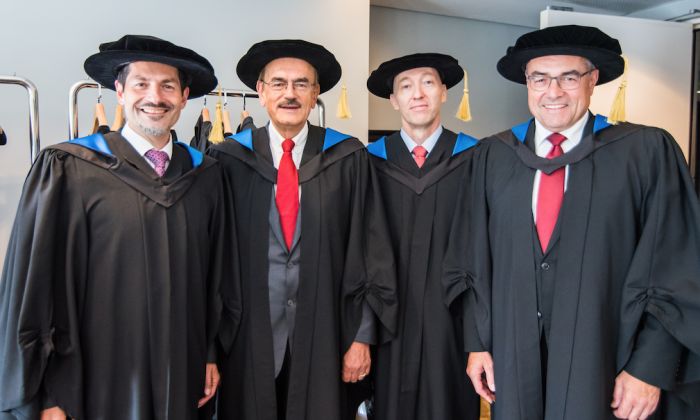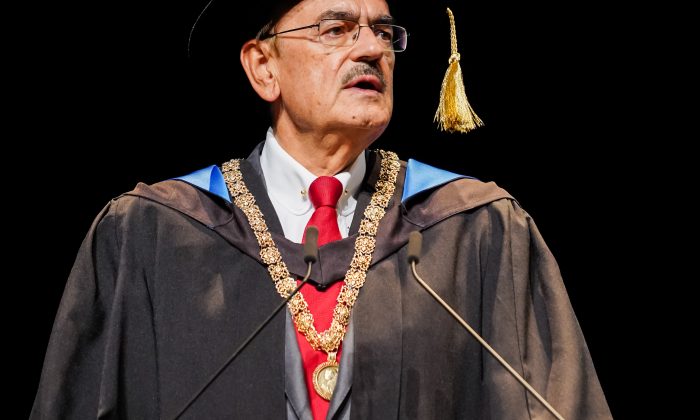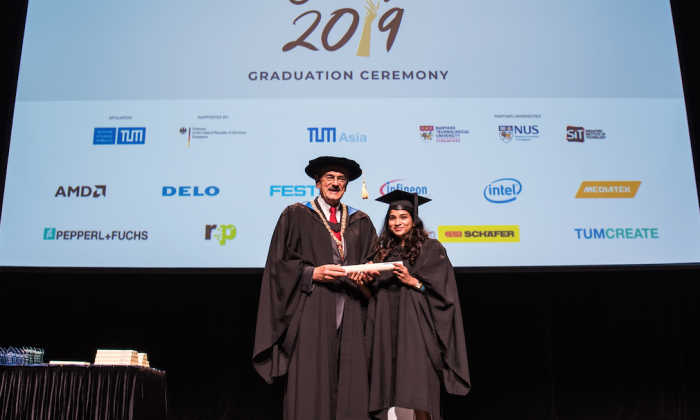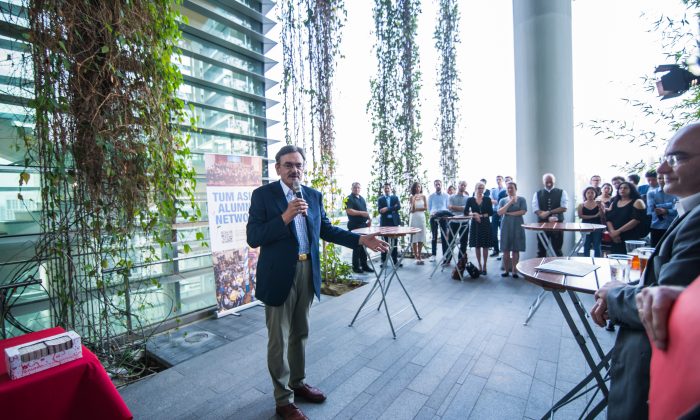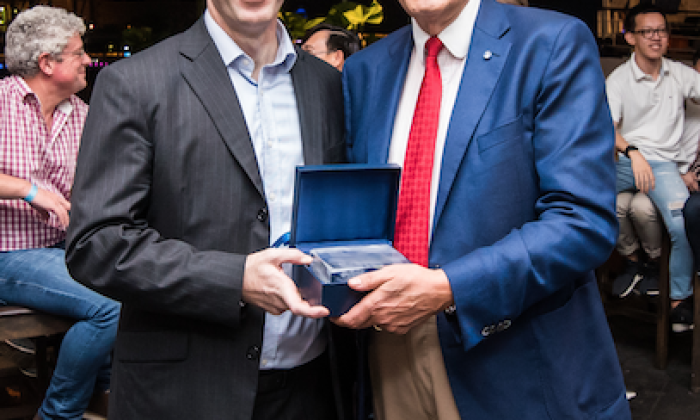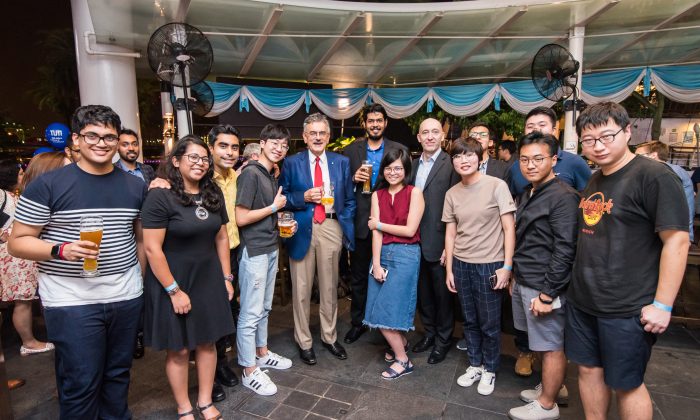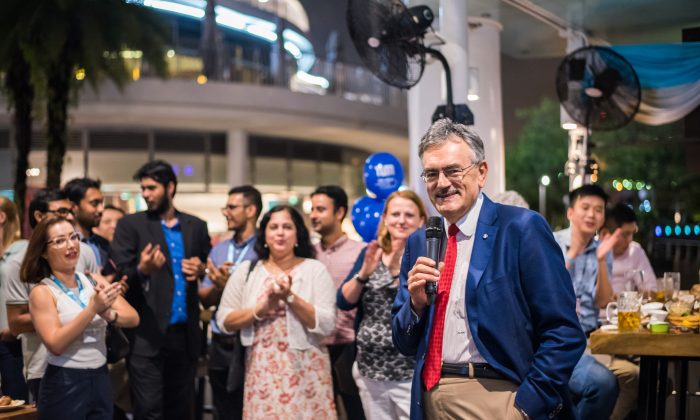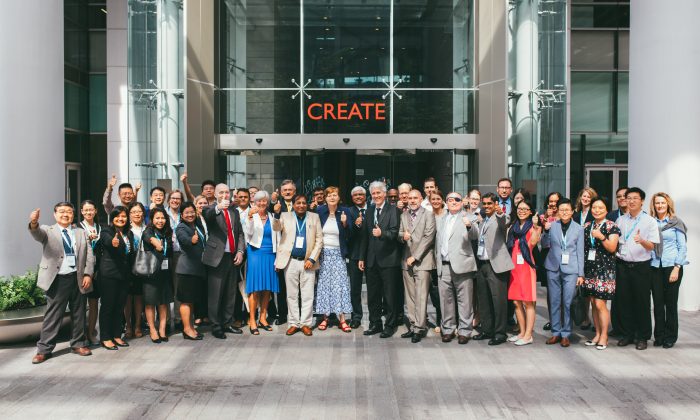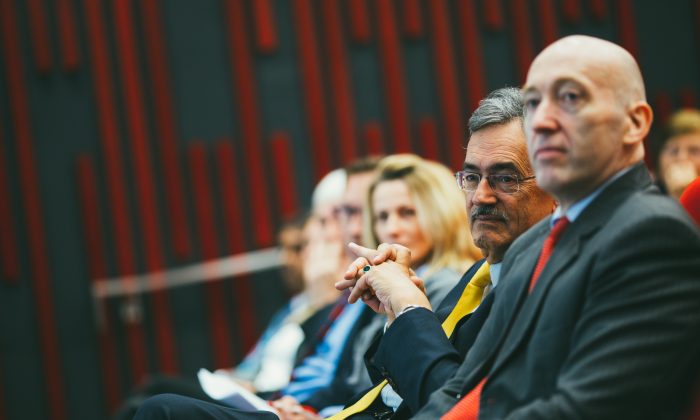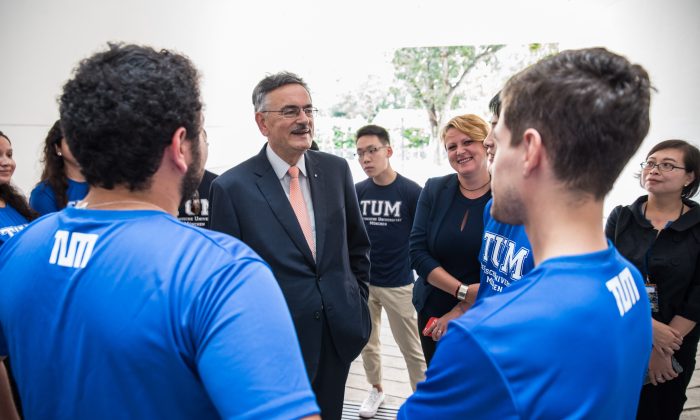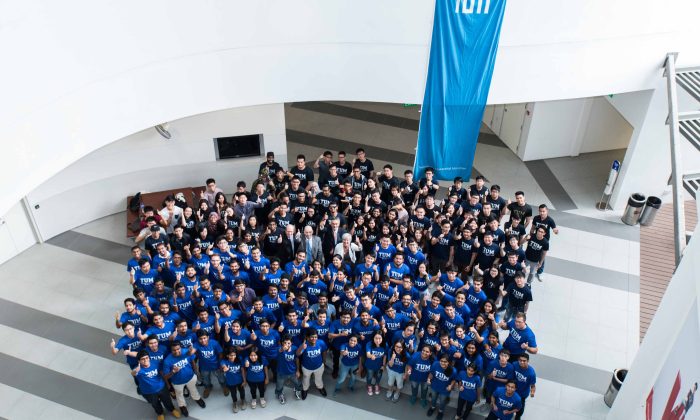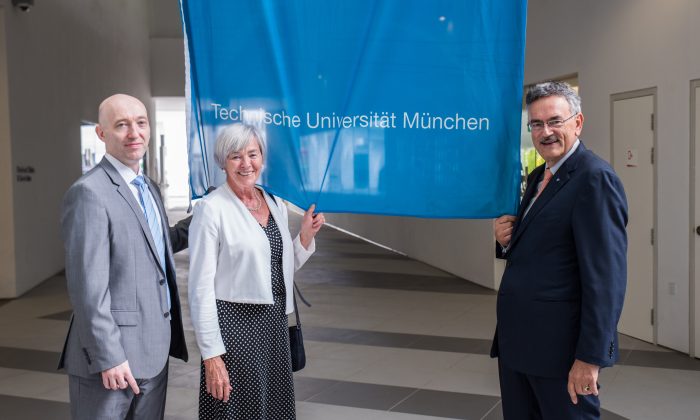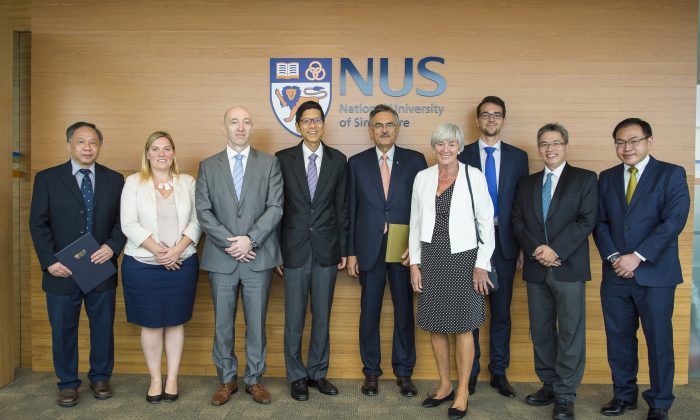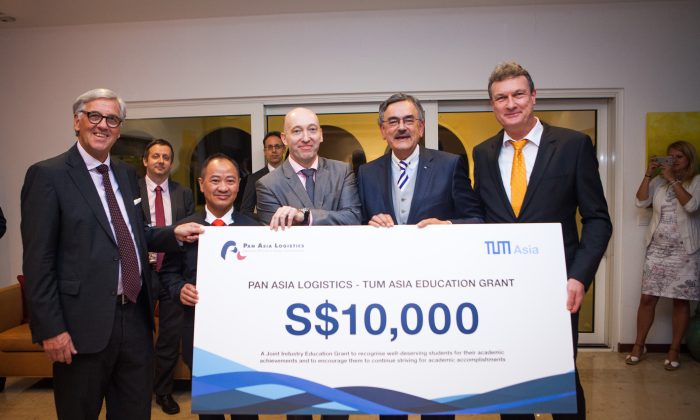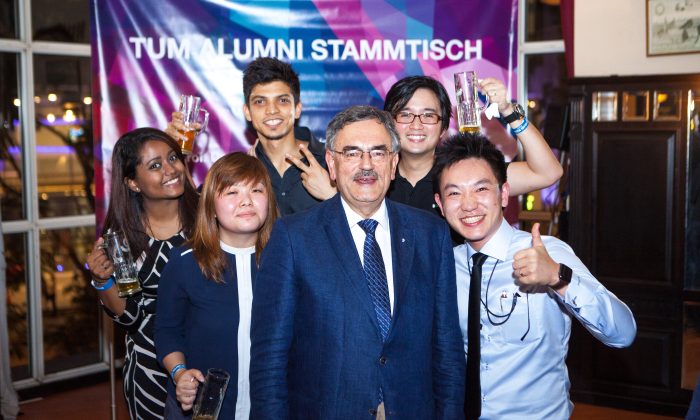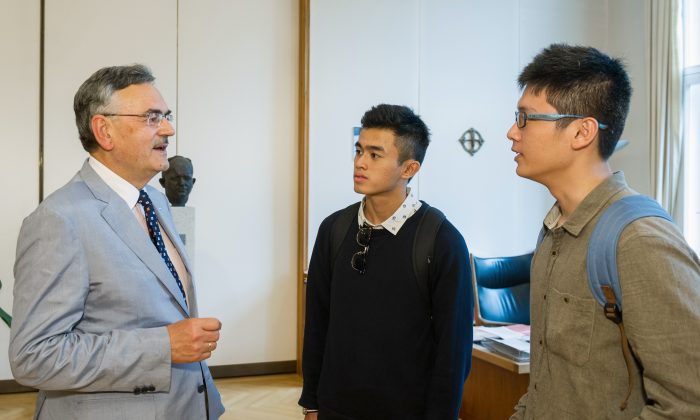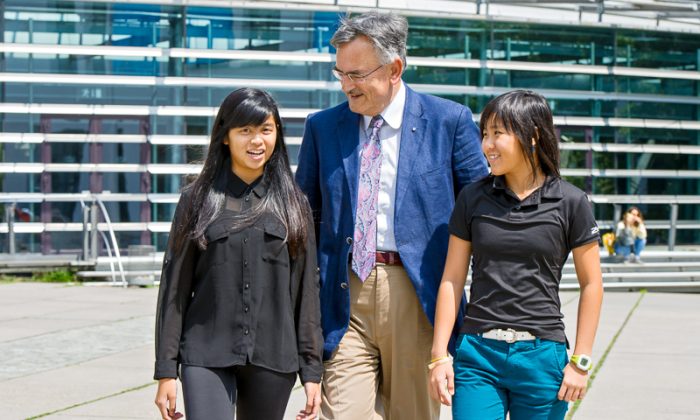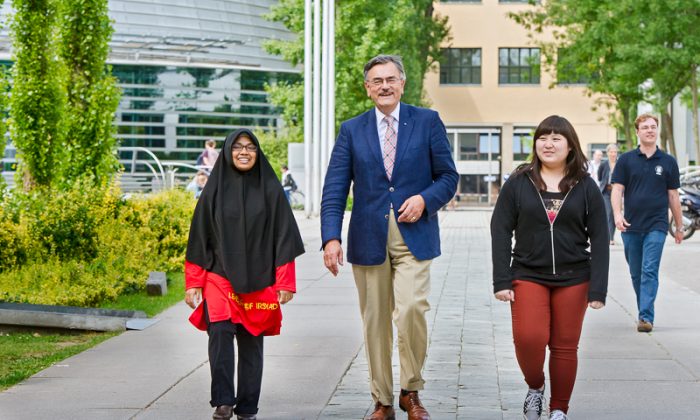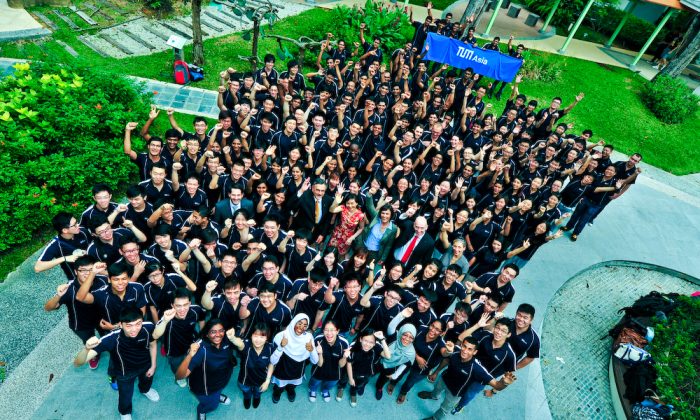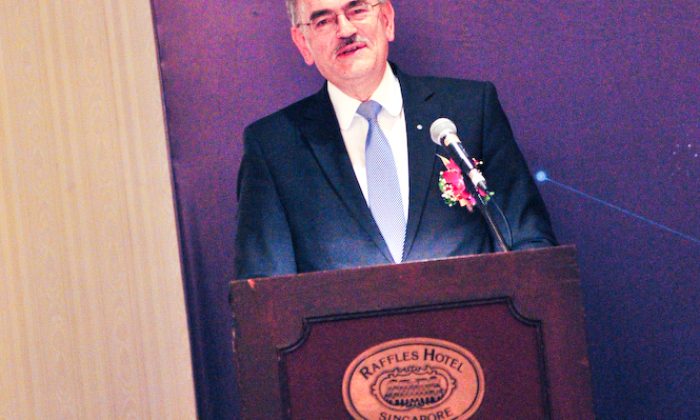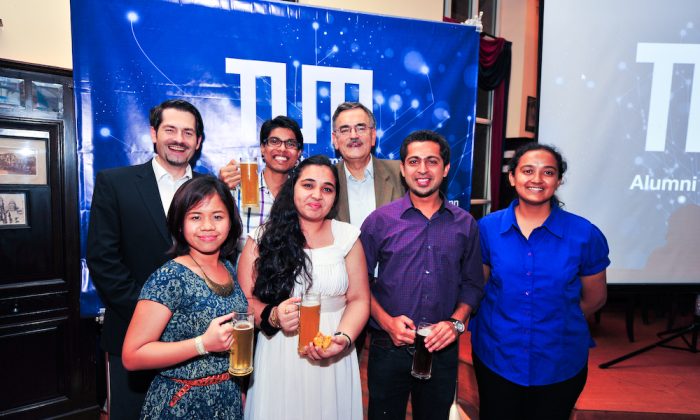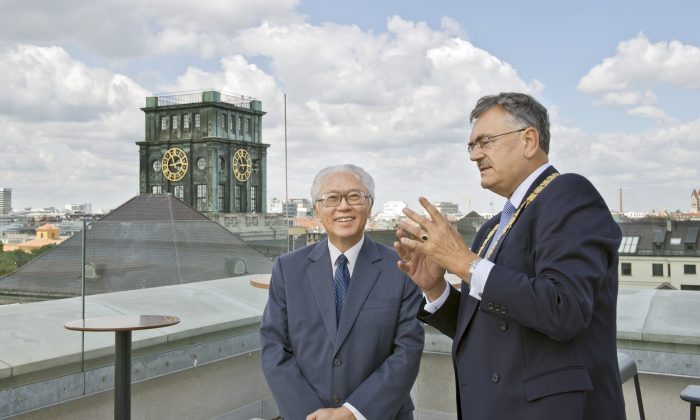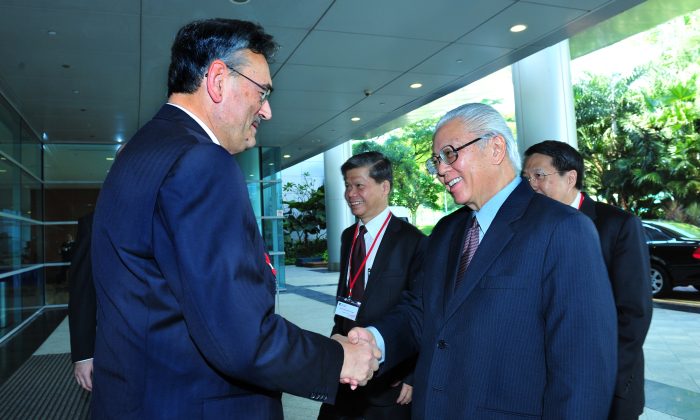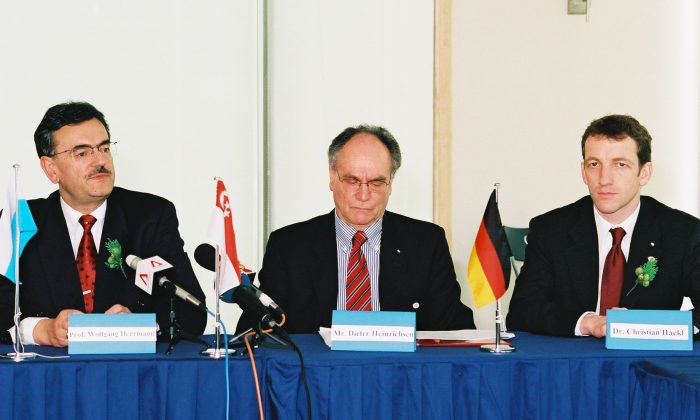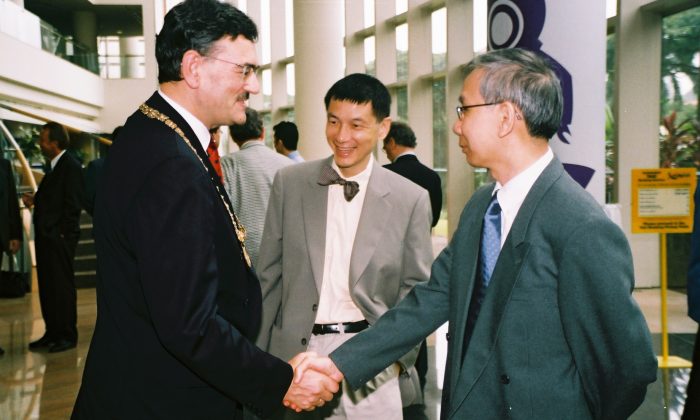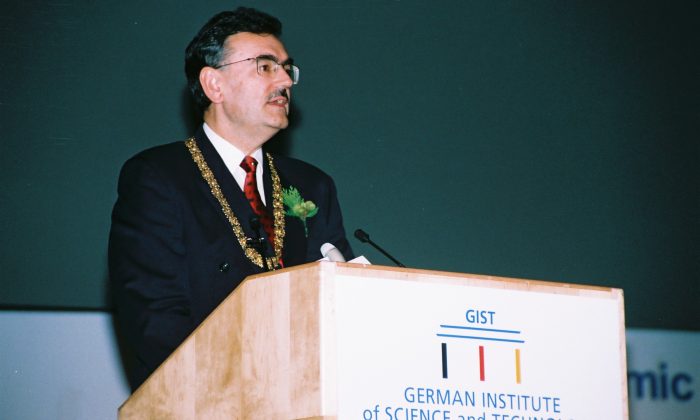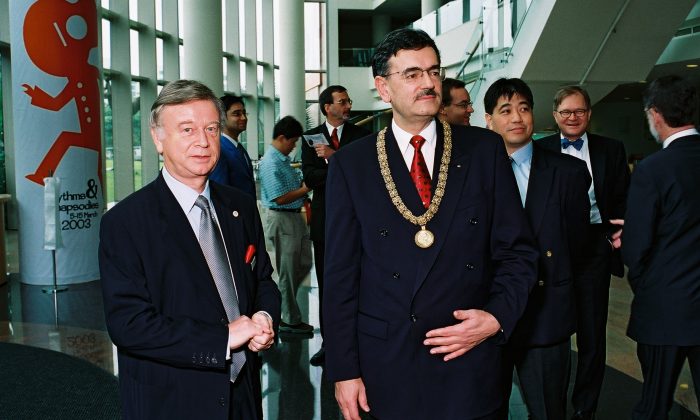Thank you Prof. Wolfgang A. Herrmann for Pioneering TUM Asia – Leadership Handover at TUM
Munich, Germany, 30 September 2019
As the longest serving President of a German University, one of Prof. Herrmann’s accomplishments would be back in 2002, where he lead the way for TUM to make a bold decision – to pioneer TUM Asia and become the first German University to have an overseas branch. This bold decision paved the way for TUM’s international reputation. The TUM community in Asia has been growing over the past 17 years.
After one of the most successful presidencies in German university history, Prof. Wolfgang A. Herrmann has made way for his successor Prof. Thomas F. Hofmann at the Technical University of Munich (TUM). At a ceremony, the Bavarian Minister President Dr. Markus Söder and former Stanford University President Prof. Gerhard Casper praised Herrmann as a university politician who combined a visionary outlook with the ability to get things done. Thomas F. Hofmann affirmed that TUM will continue acting as a force for technological change in the interests of society.
The end of an era: In his 24 years as TUM President, Prof. Wolfgang A. Herrmann implemented far-reaching reforms that turned TUM into an entrepreneurial university while leading it to the international forefront in terms of research, teaching, and technology transfer. In recognition of its strategy and achievements, TUM has been designated as a University of Excellence on three occasions. Now Germany’s longest-serving university president has handed over his office to Prof. Thomas F. Hofmann, who has served for many years as the Senior Vice President for Research and Innovation at TUM.
In his official speech, Minister President Dr. Markus Söder said: “The success of TUM is inseparable from the work of Professor Herrmann as president. For more than two decades he has demonstrated wisdom, passion and a spirit of innovation while leading TUM and advancing its development. This unique lifetime achievement warrants the utmost respect and recognition.” The Minister President stressed the importance of science and research for Bavaria: “The state of Bavaria is firing up the research turbines. Under a new multi-billion euro program, we are investing in the sciences, recruiting top professors from all over the world and expanding leading-edge research. We’re ready to make an impact at the international level.”
Prof. Gerhard Casper, former President of Stanford University, paid tribute to Wolfgang A. Herrmann as the “agent of change”.
Image: Uli Benz / TUM
The second address was delivered by Prof. Gerhard Casper. The former President of Stanford University said: “As a scientist serving his university, the president is primarily a trustee whose task is to preserve what is excellent in teaching and research while playing a formative role and acting as an agent of change. His obligations relate both to the present and the future – but also to the past. Not only on the occasion of the university’s 150th anniversary, but also over his entire presidency, Professor Herrmann has brilliantly succeeded in blending TUM’s past, present and future. In that way he has given his university a distinct profile that honors its historical roots and has firmly anchored innovation and entrepreneurial spirit as defining elements of TUM’s identity.”
Bernd Sibler, the Bavarian Minister of Science and the Arts, said: “As we say farewell today, we are marking the end of the era of a great visionary – for the Technical University of Munich and for Bavaria as a hotbed for science and research. As the longest-serving president of a German university, he has dedicated his life’s work to TUM. Under his leadership, TUM became a future-ready University of Excellence. For that I would like to express my deep respect and enormous gratitude! At and with TUM, he has created a lasting monument for himself and the state of Bavaria!”
“A guiding principle I have always lived by is the need to break free from habitual thought patterns,” said Wolfgang A. Herrmann. “And what goes without saying in the adventure of scientific research should also apply when leading a university. But a president can succeed only if he gets the university community on board when setting out on the road to the future. Watching the TUM family grow closer together across the generations in recent years has been a source of joy. It has also filled me with pride to see what we have achieved for society: important discoveries to address future global issues, producing highly skilled graduates in many fields, from medicine to teaching, and dynamic start-ups that are making innovations available to everyone.”
Thomas F. Hofmann said that TUM’s commitment to social responsibility will only increase in the future: “We have to work with society to shape the rapid advances in technology in order to preserve democracy, peace and prosperity. That is why the university must continue to embrace change. The departments will intensify their cooperation, we will increase our commitment to diversity among researchers and the student body, and we will encourage unconventional and interdisciplinary approaches.”
Engine of reform for the German research system
With the encouragement and support of the reform-minded Bavarian Minister President Dr. Edmund Stoiber, Wolfgang A. Herrmann expanded the university’s autonomy to new dimensions, engaged in international competition and executed an enormous number of rapid-fire reforms, many of which set new standards for the German research system. These include the new university constitution, with a board of trustees as a supervisory body (1999), and the TUM Faculty Tenure Track system (2012), which gives TUM a big competitive edge when recruiting top international talent. This enabled Herrmann – himself a successful chemist – to appoint outstanding academics from highly respected institutions in Germany and abroad. This is making the face of the TUM faculty younger, more female and more international than ever before.
Thanks to his continuous efforts to expand the interdisciplinary dimension of the research organization, TUM is now in a position to fully leverage the potential of its range of subject areas, which is unrivalled in Europe. Key milestones have included the establishment of the Integrative Research Centers that pool expertise in a given field of research, such as the Munich School of BioEngineering (2015), the Munich School of Robotics and Machine Intelligence (2018), and the Munich Center for Technology in Society (2012). The integration of social sciences was a historic step for TUM. Herrmann pushed the establishment and networking of departments of management science (2002) and political science (2016) by focusing on the programmatic interplay of these fields with technological progress.
In another interdisciplinary initiative during Herrmann’s time as president, TUM freed its degree programs from the rigid links to specific subject areas and instead aligned course contents with future priorities. Today TUM is sixth worldwide in the Global University Employability Ranking, which rate the quality of graduates. Prof. Herrmann introduced selective processes for student admissions (2000), resulting in higher degree completion rates than at other universities. At the same time, TUM has doubled the number of students within 15 years to 40,000. Foreign students now make up 30 percent of the total. The TUM School of Education (2009) became a role model for German universities as the first department to be responsible for the teaching degree programs based on empirical research in the field.
Since the millennium, Herrmann has turned TUM into one of Europe’s most successful universities for promoting start-ups. TUM currently incubates more than 70 technology start-ups every year. Herrmann has boosted cooperative partnerships with research-driven companies, which increasingly include international global players, largely through his “Industry on Campus” strategy.
The outgoing president was guided by the motto “connecting home with the world”. With the opening of the Singapore campus in 2002, TUM became the first German university to establish a campus abroad. Today it has liaison offices on five continents. Herrmann has initiated partnerships with the best universities, most recently with the Imperial College London (2018). At the same time he has reinforced TUM’s Bavarian roots with the expansion of the Straubing campus (2001/2017) and the establishment of the TUM Science & Study Center in the historical Raitenhaslach monastery (2016).
Thomas F. Hofmann has already made important contributions to many of TUM’s successes. The experienced university manager has served for 10 years as the Senior Vice President for Research and Innovation at TUM. He worked with Wolfgang A. Herrmann to draft the latest Excellence Strategy that will bring about further far-reaching changes over the coming years.
The traditional 15 departments will be replaced by seven schools that will intensify interdisciplinary cooperation. TUM will undertake a massive expansion in the humanities and social sciences to integrate those areas into the research projects and the degree programs of the engineering sciences. The goal is a fundamental cultural transformation of engineering sciences, aligning them more closely with the needs of society. This commitment to ‘human-centered engineering’ will foster a new, TUM-specific brand identity.

Minister President Markus Söder presents a reproduction of the charter of today’s TUM to Wolfgang A. Herrmann.
Image: Andreas Heddergott / TUM
Hofmann intends to offer even greater scope for visionary and adventurous research ideas. Project teams grouped in “TUM Innovation Networks” will receive multi-year start-up funding to assess the outlook of their undertaking.
TUM’s teaching activities will be opened up to offer a wide range of life-long learning options, especially for working alumni. Within the university, Hofmann plans to improve career opportunities for mid-level academics – a group widely seen as neglected at German universities – by setting talent-specific priorities in teaching, research and science management. In international relations, TUM will focus more attention on the emerging African countries while recalling its European roots.
About TUM and TUM Asia
The Technical University of Munich (TUM) is one of Europe’s leading research universities. Its focus areas are the engineering sciences, natural sciences, life sciences and medicine, combined with economic and social sciences. TUM acts as an entrepreneurial university that promotes talents and creates value for society. In that it profits from having strong partners in science and industry. It is represented worldwide with the TUM Asia campus in Singapore as well as offices in Beijing, Brussels, Cairo, Mumbai, San Francisco, and São Paulo. Nobel Prize winners and inventors such as Rudolf Diesel, Carl von Linde, and Rudolf Mößbauer have done research at TUM. Since 2006, TUM has won recognition as a German “Excellence University.” In international rankings, TUM regularly places among the best universities in Germany.
As the first German academic venture abroad, TUM Asia opened its doors in Singapore in 2002. German in its roots and Asian in its approach, TUM Asia combines an emphasis on industry readiness and innovation with a distinct dedication to be relevant to Asia and its development. TUM Asia has seen more than a thousand students come through its Bachelor & Master programmes, including graduates from Asia and Europe.
—
Source: TUM.de, TUM Asia
